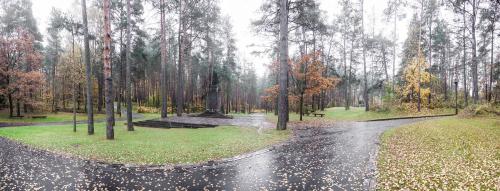Report: #NeverForget. Teaching about Trauma Experiences on the Historical Sites in Lithuania

The EHRI partner Vilna Gaon State Jewish Museum has recently co-organised a seminar entitled #NeverForget: Teaching about Trauma Experiences on the Historical Sites organized in collaboration with the Faculty of Communication of Vilnius University and The International Commission for the Evaluation of the Nazi and Soviet Occupation Regimes in Lithuania. The seminar was attended by 50 participants (teachers, librarians, museum specialists, students) and was a part of the International project #NeverAgain: Teaching Transmission of Trauma and Remembrance through Experimental Learning supported by the European Commission.
Learning today has to include a broad range of disciplines in order to express the inter-relationships between basic knowledge and research and to make it more directly relevant to the users' needs. Therefore universities need to find ways of organizing learning that promotes networking, both inside and outside academic institutions, and at both local and international levels. In addition to this, learning is no longer concentrated at a single location. New knowledge is increasingly being produced and applied in 'hybrid' settings that may involve groups of people from different disciplines and institutions coming together to tackle specific problems.
The #NeverForget place-based education seminar tried to synchronize theory and practice through two lectures by Professors from the Faculty of Communication at Vilnius University: a lecture by Prof Rimvydas Laužikas, entitled „Communication of Heritage: from Knowledge and Artefacts to Messages, from the Messages to to Historical Memory“; and one by Prof Arvydas Pacevičius „Trauma Experience Testimonies in the Ego Documents“). Additionally, led by Neringa Latvyte-Gustaitiene , it offered trauma learning in situ through a visit to the biggest mass killing site in Paneriai, and by exploring, reading and mapping a place where the mass atrocities were committed. It finally offered participants the opportunity to meet with specialists from the Vilna Gaon State Jewish Museum, which preserves and communicates the memory of those who perished, to learn about the services the museum provides to visitors.
